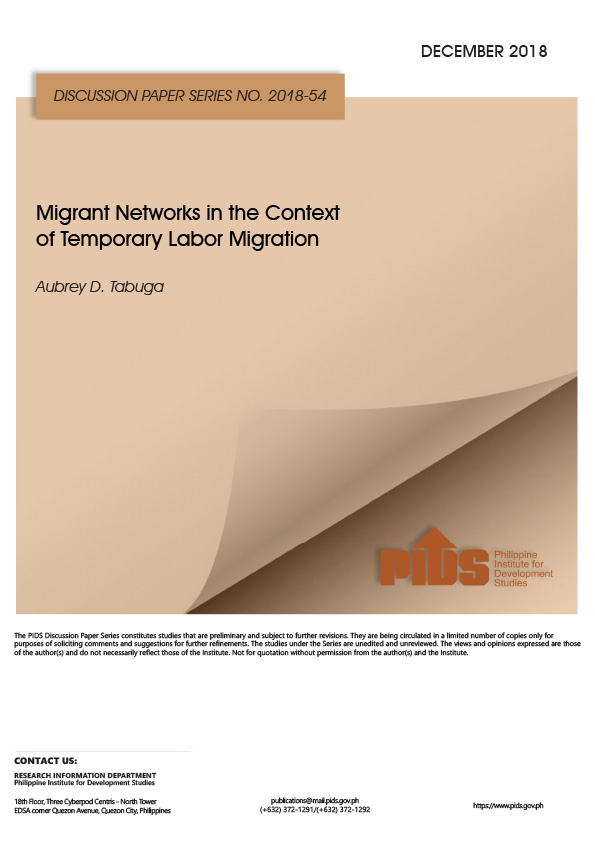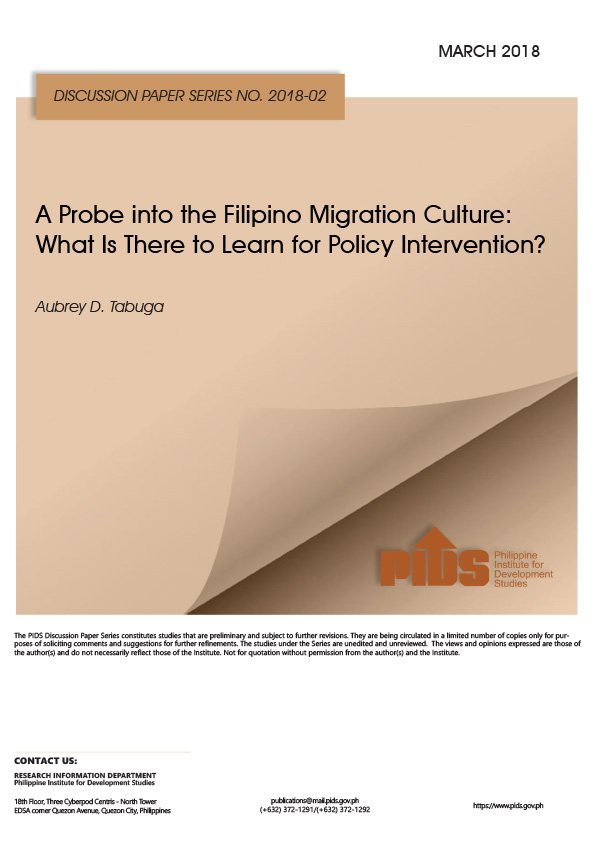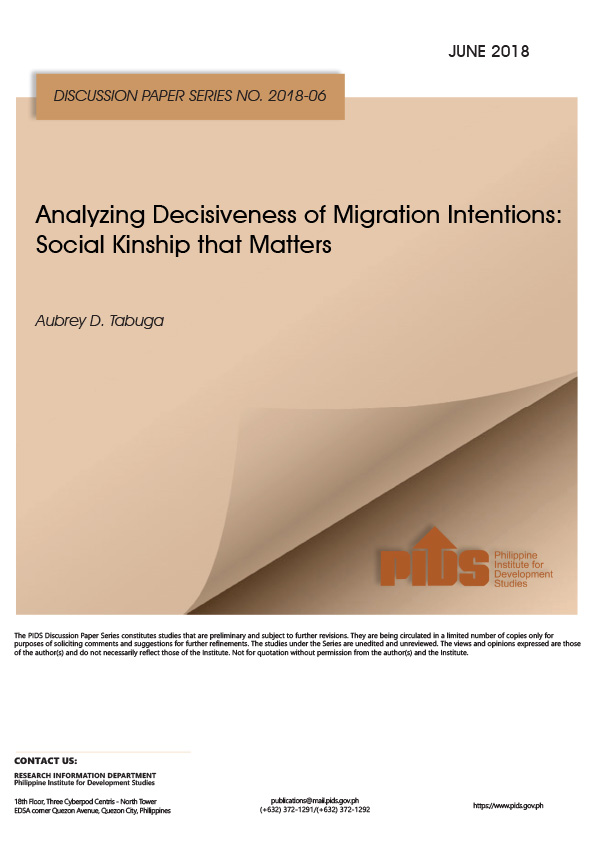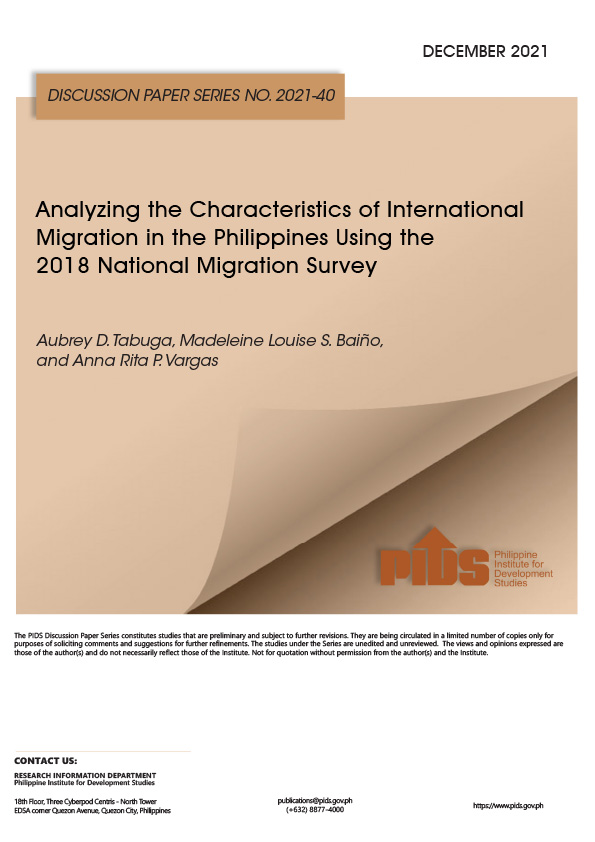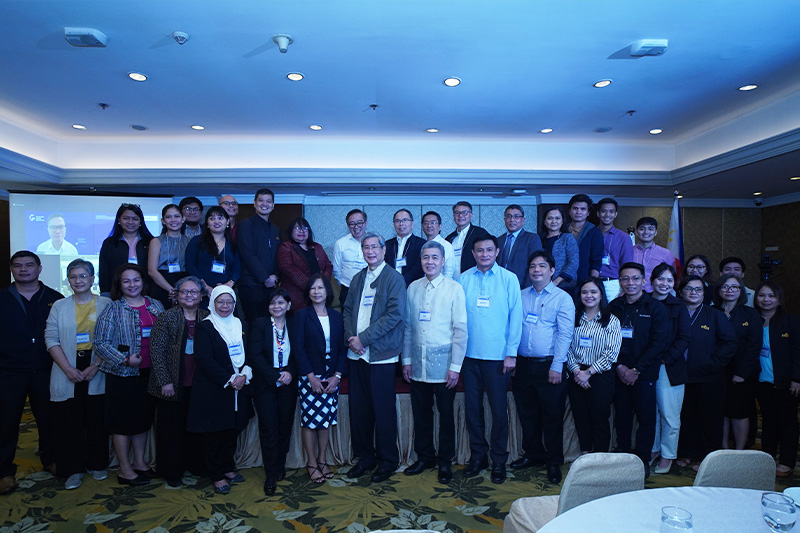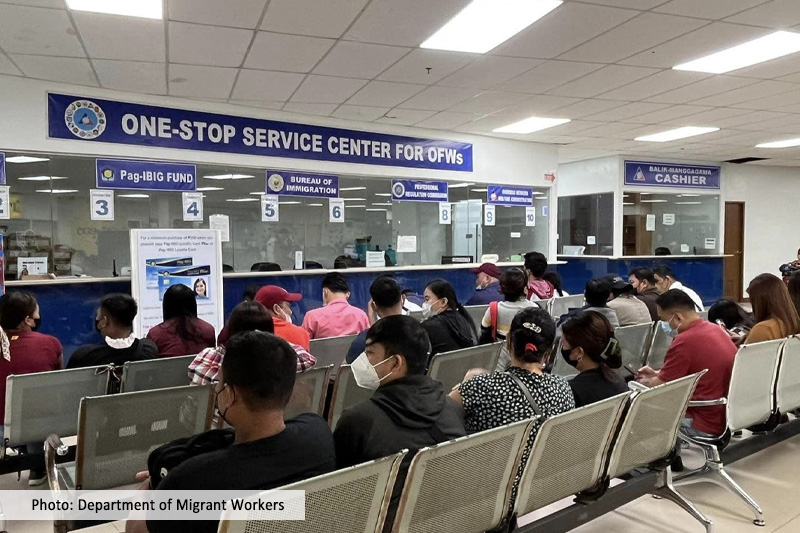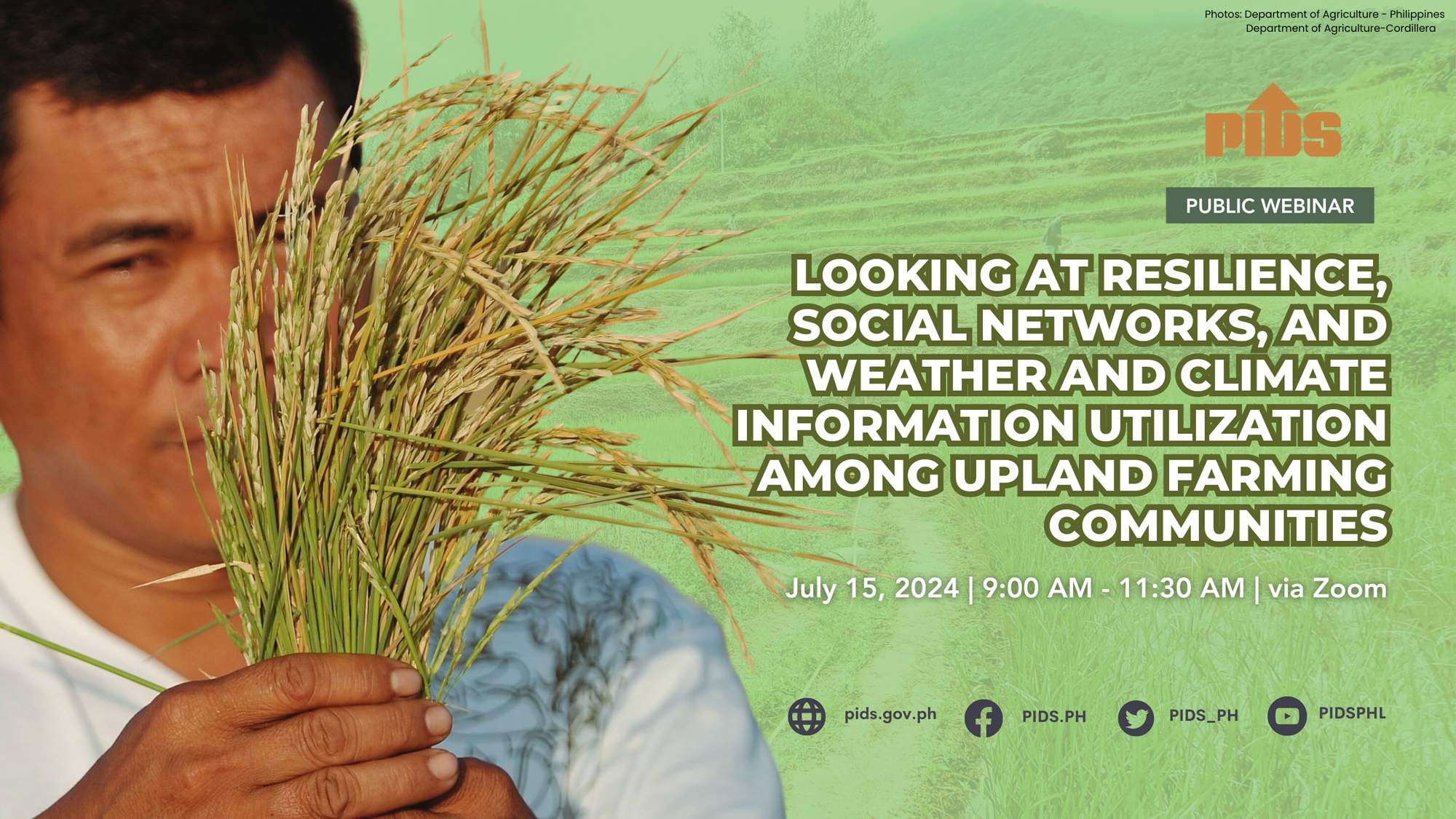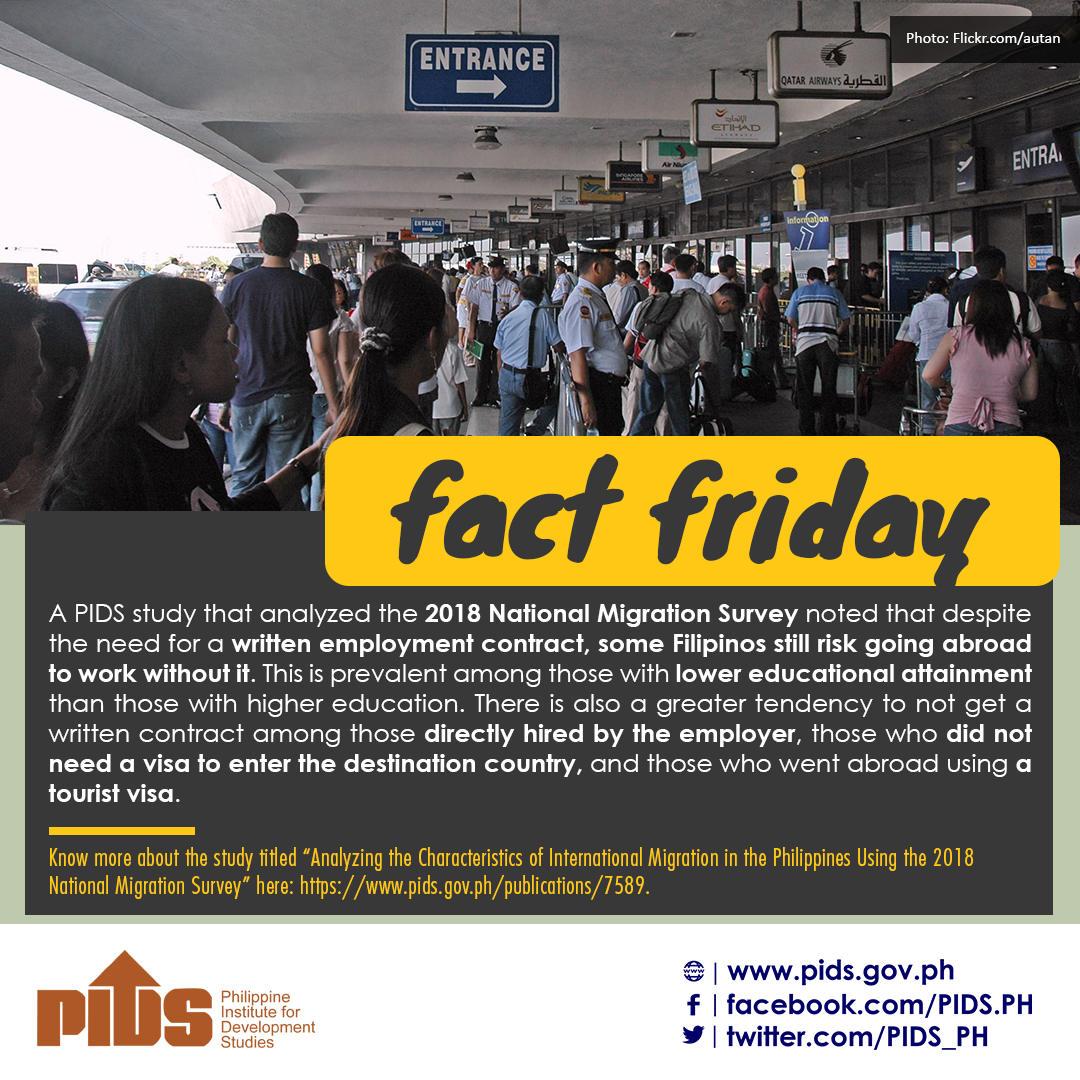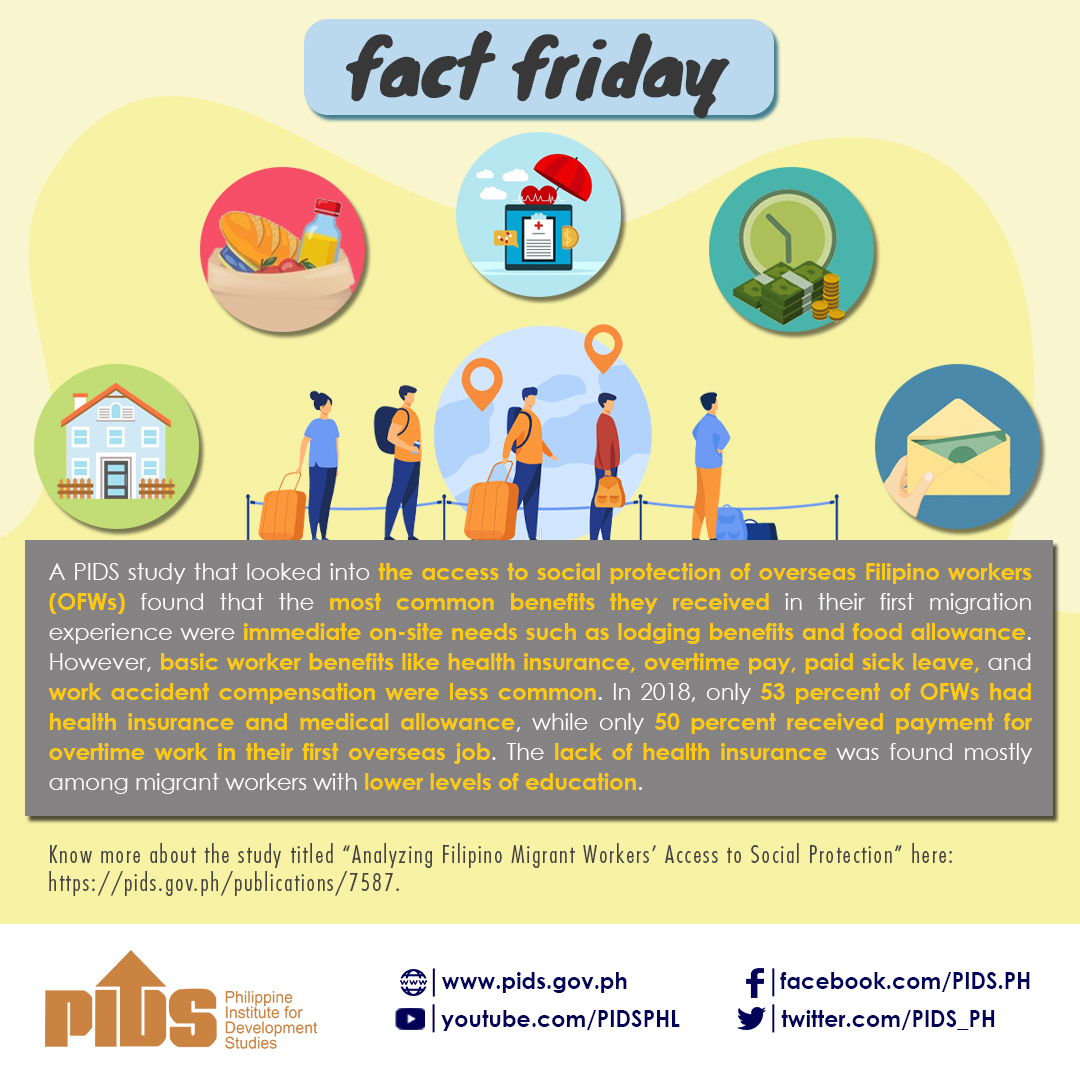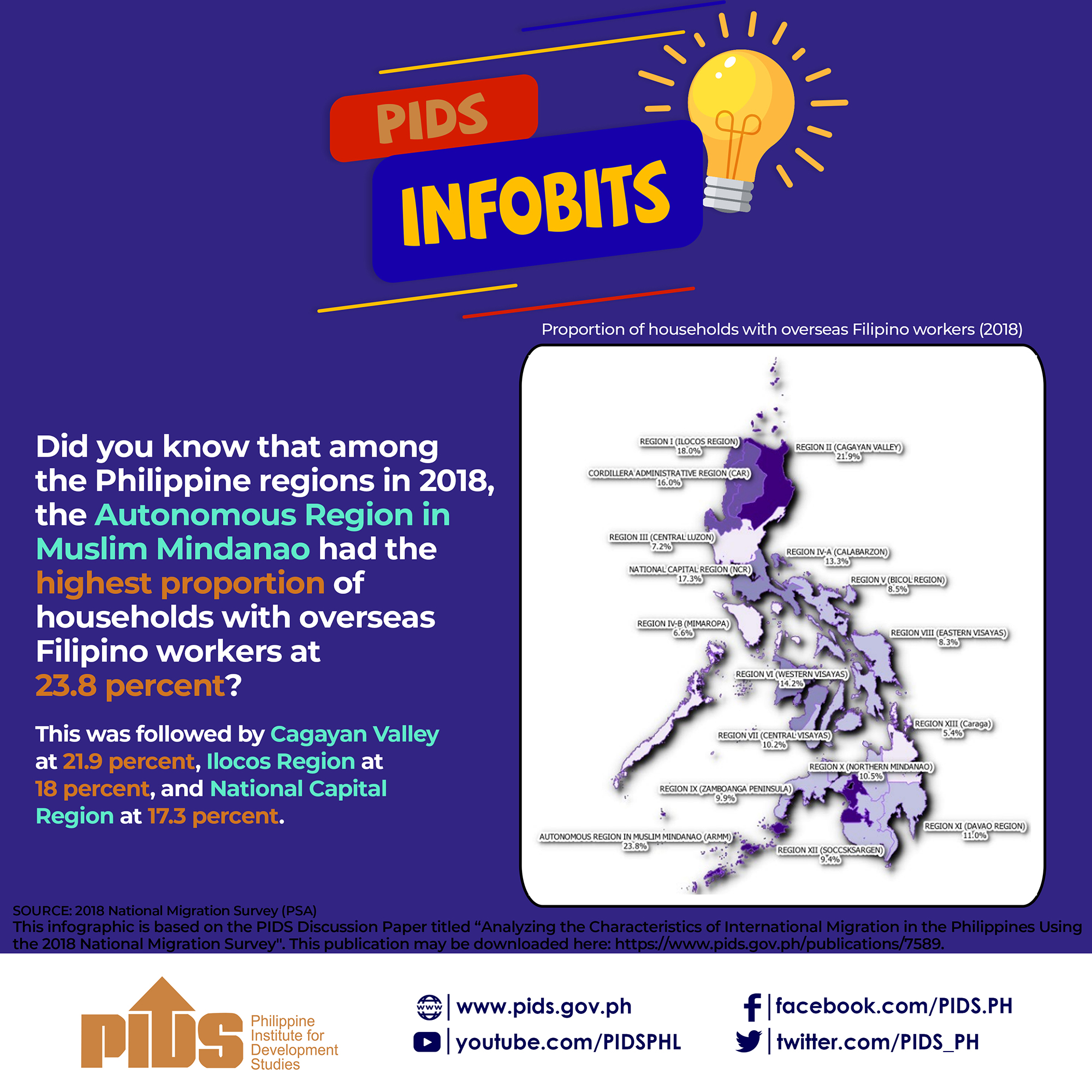Understanding migration behavior is crucial in designing policy interventions for influencing migrants’ behavior. An aspect of international migration that lacks scholarly inquiry is temporary labor migration. This paper examines the migration behavior of households from a labor-sending rural village in the Philippines. It specifically looks at the role of migrant networks in the perpetuation of labor migration. The study found that not all types of migrant networks matter for international labor migration. While the standard job search model would find weaker ties more useful in the search for jobs, there is empirical evidence that strong ties matter more in international labor migration from a developing country context. Notwithstanding the limitations of the study, and based on the sample that was used, international migration in the Philippines is an intergenerational phenomenon.

